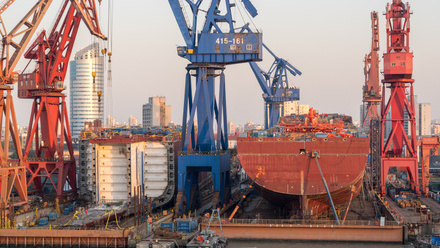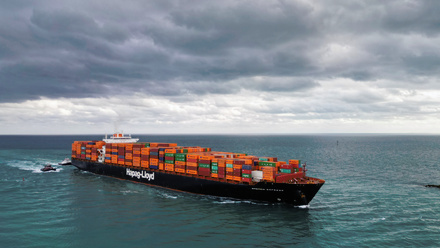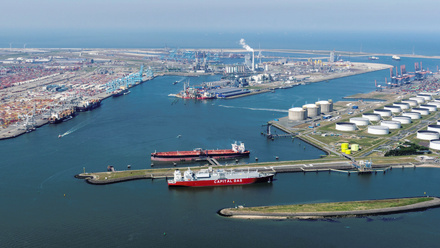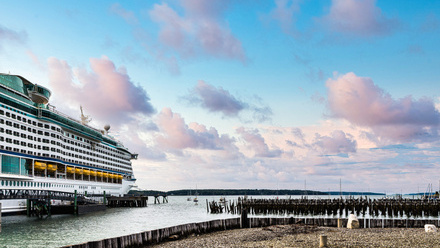Global shipping losses reach record low amid rising risks
The shipping industry recorded a historic low in total vessel losses in 2024, with just 27 large (100GT +) ships lost worldwide.
The figure, revealed in the Allianz Safety and Shipping Review 2025, represents a downward trend since the 1990s, when the global fleet lost over 200 vessels annually. Along with this good news comes the not-so-good news. Although losses are declining, the overall number of reported shipping casualties or incidents rose by 10% in 2024.
Machinery damage or failure, followed by collision with other vessels, has been the leading cause of shipping casualties or incidents (including shipping losses) since 2015. In 2024, fire or explosion came in third place as the cause, swapping places with groundings, which was the third largest cause of casualties or incidents between 2015 and 2024.
In terms of location, the British Isles, North Sea, English Channel and Bay of Biscay region, East Mediterranean and Black Sea region, and South China, Indochina, Indonesia, and Philippines regions have seen the highest numbers of reported casualties or incidents since 2015. These regions, the review notes, do see significant numbers of shipping traffic.
One of the most alarming findings in the report is the record number of seafarers abandoned at sea. 3,133 seafarers were left stranded in 2024, 87% more than in 2023. The reason for this increased abandonment may come from what the review describes as the “uncertain climate, driven by conflicts, vessels facing detention or being held because owners face bankruptcy or sanction issues.” Moreover, seafarer kidnappings and detention incidents doubled in 2024.
Political pressures at sea
Geopolitical tensions are creating new and unpredictable threats to maritime stability. “Total losses from traditional causes like fire and collision may have reduced over time, but we could be in a position where this positive trend is potentially offset by war and other political-related exposures,” says Captain Rahul Khanna, Global Head of Marine Risk Consulting, Allianz Commercial.
The review outlines attacks on commercial vessels in the Red Sea, seizures of ships under disputed ownership, suspected sabotage of undersea cables, and increasing reports of GPS interference and jamming. The likelihood of the security threat in the Suez Canal and Red Sea, one of the world’s busiest shipping routes, is unlikely to decline anytime soon.
The rise of the so-called "shadow fleet"- older tankers operating under flags of convenience - adds another layer of risk. Alongside poor maintenance and insufficient insurance, these vessels are reported to turn off AIS, conduct risky ship-to-ship transfers, and lack proper insurance or maintenance. Some estimates suggest that 17% of the global tanker fleet operates in this grey zone.
Decarbonisation and climate risks
With the decarbonisation of the shipping industry to tackle harmful greenhouse gas emissions moving forward, the review highlights concerns about the uptake of alternative fuels such as LNG, ammonia, methanol, and hydrogen. These fuels carry new technical and operational risks, including fire hazards, machinery complexity, and crew competency requirements.
Equally, the electrification of vessels presents new risks, particularly through lithium-ion batteries that can overheat, causing a risk of fire. “The transportation of [battery energy storage system - BESS] units over sea and land adds another dimension to battery risks,” says Captain Khanna.
“Battery State of Health (SOH), including diagnostic testing and validation, continues to see improvements and provides solutions in the way of preventing incidents. Artificial intelligence (AI) is also assisting with evaluating the SOH of battery cells and BESS,” says Captain Randy Lund, Senior Marine Risk Consultant with Allianz Commercial. “We anticipate that these ongoing advancements will provide the managers with the advanced warnings and knowledge needed, so that corrective actions may be taken before reaching a critical state.”
Tell us what you think about this article by joining the discussion on IMarEST Connect.
Image: cargo ships navigate through the Suez Canal. Credit: Shutterstock.






